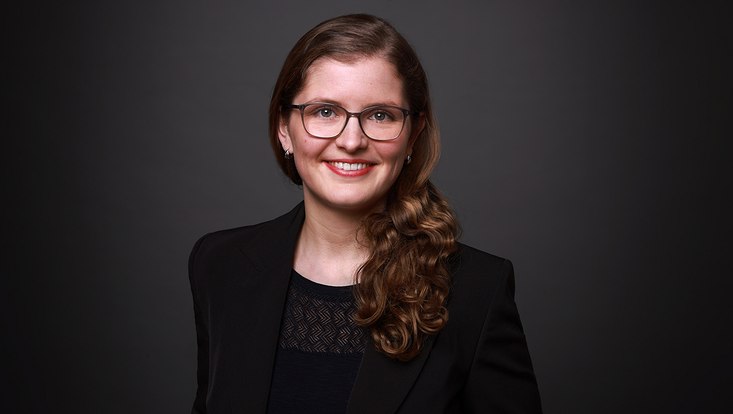Stay in the loop
You want to stay up to date about the HRA’s offerings? Follow us on LinkedIn or sign up for the HRA newsletter!
Photo: HRA
30 January 2023

Photo: HRA/Sommer
In our monthly series People You Should Know, we introduce people from Hamburg’s academic community who may be helpful contacts. It also gives you the opportunity to learn more about various aspects of research and higher education management. Today we are speaking with Dr. Fenja De Silva-Schmidt who is responsible for the research communication project at the Hamburg Research Academy.
I coordinate the research communication project – I plan workshops, record podcast episodes, take care of our support fund, and organize activities on the topic of science communication. If you want to learn more about the topic or need support for your own project, then the HRA is the right place and I am the right person. And because the interest in and demand for science communication have risen starkly in the last few years, it is also an increasingly relevant area for doctoral and early career researchers.
I studied journalism and communications and, at the same time, I gained initial practical experience in science communication as a freelance (science) journalist. Afterwards, I did my doctorate in climate change communication, so I also dealt with science communication as a research topic. In my current position, I can bring together my experience in various areas of science communication. And in contrast to my work as a researcher, I can focus solely on the topic and work together with a highly motivated target group, which is a lot of fun for me.
Good communication is important, perhaps even more so for doctoral and early career researchers than for people with a professorship. Talk to people within your own network and your area of expertise, but also get into contact with people and topics outside your comfort zone—this often leads to new ideas and findings. Talk about your research to people who have nothing to do with academia—that helps you to clarify the relevance of your own topic and find possible links to other fields. And: follow your own interests and strengths instead of following trends. In the long term, that will lead to greater success and make you happier.
You want to stay up to date about the HRA’s offerings? Follow us on LinkedIn or sign up for the HRA newsletter!